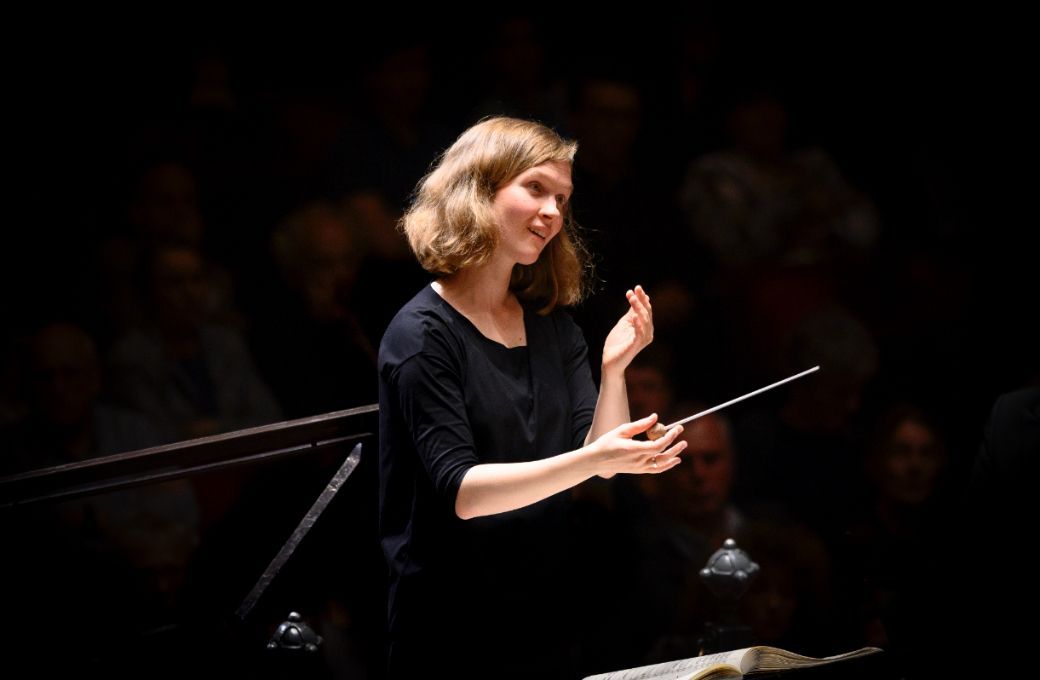Mirga Gražinytė-Tyla is having quite a year. Following her departure from the City of Birmingham Symphony Orchestra in 2022, she has spent subsequent seasons travelling the world as a guest conductor working with an impressive array of leading orchestras. Monday night’s concert saw her return to the Concertgebouw, this time with the Orchestre Philharmonique de Monte-Carlo and Polish pianist Rafał Blechacz for a programme of Chopin and Dvořák, with a splattering of Weinberg for good measure.

Gražinytė-Tyla immediately channelled a carnival spirit. Weinberg’s neglected The Golden Key, Suite no. 4, which mixes the quirkiness of Stravinsky’s Soldier’s Tale with Prokofiev’s mellower moments, was a curious choice though. It felt a little trivial. Perhaps it was a missed opportunity for a French premiere in the Concertgebouw in front of an audience brimming with fellow compatriots. Nevertheless, this work afforded an insight into Gražinytė-Tyla’s conducting style, and initial signs were promising. Her technique was efficient and effective: sweeping horizontal gestures with her left hand reaped immediate results.
Blechacz joined the stage for Chopin’s Piano Concerto no. 2 in F minor, and the orchestra set off at a sprightly tempo. The second subject seemed more relaxed, but sudden and unexpected tempo changes – none of which are indicated in the score at this point – rocked the boat before we had even set sail. More importantly, these tempo changes made it hard to maintain the turbulence and angst evoking Chopin’s torrid and tempestuous unrequited love for his muse, Konstancja Gładkowska. With Blechacz’s opening flourish, we felt on safer ground. Increasingly though, the piano too lacked urgency. All seemed too nice. Although technically dazzling, Blechacz lacked the emotional connection of which he wrote in the programme notes.
In contrast, the orchestra set the mood beautifully in the Larghetto, the piano floating above a listless sea. But as we progressed, everything felt too square. Piano phrases finished neatly, more akin to the music of Mozart rather than endless searching of Chopin. Do his phrases ever really end? Where was the longing and the yearning of young love? Moving forward, balance increasingly became an issue as the solo bassoon and woodwind antiphonal exchanges all struggled against the might of the piano. At last the clarinet broke free, but it was too late. A laboured horn signal in the final moments left one pondering what might have been. Blechacz returned to the stage for Chopin’s Waltz no. 7 in C sharp minor.
Unfortunately, similar issues extended into Dvořák’s Symphony no. 9 in E minor, "From the New World", an interpretation which bore many similarities to that of her mentor at the Los Angeles Philharmonic, Gustavo Dudamel. Extremes of tempo continued, and it became increasingly apparent that there was something of a difference of opinion. Balance was also problematic, especially at the beginning of the Largo when despite a fabulously unctuous brass chorale, we struggled to hear the major third in the following string chords which introduce the beautiful cor anglais solo. Ensemble too faltered, even from musicians who were sitting next to each other. Increasingly elaborate conducting gestures belied the reality. There were, however, some really exciting moments, but they were often eclipsed by passages so incredibly slow – at times lost in abyss – that all momentum ceased. The brass, especially the trombones, were having none of it; they ensured a triumphant finale. The night finished with some more from Gražinytė-Tyla’s composer of the moment: Weinberg’s Aria for string quartet, Op.9.


